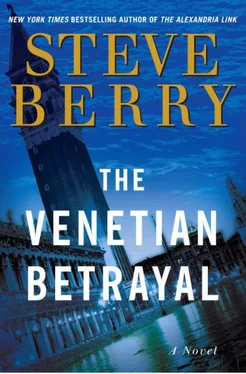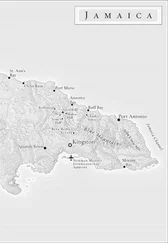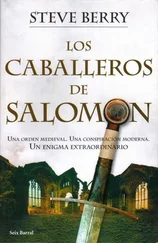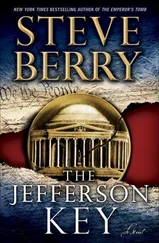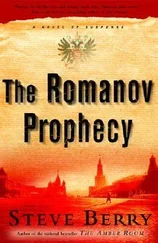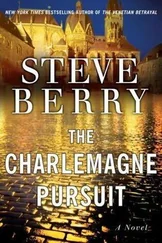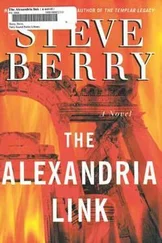One of the thieves.
Heading straight for Thorvaldsen’s car.
Thorough, she’d give them that, but not necessarily careful, especially considering that they knew someone was at least a few steps ahead of them.
She watched as the man plunged a knife into both rear tires, then withdrew.

MALONE CAUGHT THE SWITCH. VIKTOR HAD DROPPED THE LOOP into his right hand while his left held the medallion. But as the loop was replaced to Viktor’s eye and the examination restarted, he noticed that the medallion was now in the right hand, the index finger and thumb of the left hand curled inward, palming the coin.
Not bad. Combined skillfully with the act of moving toward the window and finding the right light. Perfect misdirection.
His gaze caught Thorvaldsen’s, but the Dane quickly nodded that he’d seen it, too. Viktor was holding the coin in the light, studying it through the loop. Thorvaldsen shook his head, which signaled let it go.
Malone asked again, “You satisfied?”
Viktor dropped the jeweler’s loop into his left hand and pocketed it, along with the real medallion. He then held up the coin he’d switched out, surely the fake from the museum, now returned. “It’s genuine.”
“Worth fifty thousand euros?” Thorvaldsen asked.
Viktor nodded. “I’ll have the money wired. You tell me where.”
“Call tomorrow to the number from the medallion, as you did earlier, and we’ll arrange a trade.”
“Just drop it back in its case,” Malone said.
Viktor walked to the table. “This is quite a game you two are playing.”
“It’s no game,” Thorvaldsen said.
“Fifty thousand euros?”
“Like I said, you destroyed my museum.”
Malone spotted the confidence in Viktor’s careful eyes. The man had entered a situation not knowing his enemy, thinking himself smarter, and that was always dangerous.
Malone, though, had committed a worse mistake.
He’d volunteered, trusting only that his two friends knew what they were doing.
XINYANG PROVINCE, CHINA
3:00 P.M.
ZOVASTINA STARED OUT OF THE HELICOPTER AS THEY LEFT FEDERATION airspace and flew into extreme western China. Once the area had been a tightly sealed back door to the Soviet Union, guarded by masses of troops. Now the borders were open. Unrestricted transportation and trade. China had been one of the first to formally recognize the Federation, and treaties between the two nations assured that travel and commerce flowed freely.
Xinyang province constituted sixteen percent of China. Mostly mountains and desert, loaded with natural resources. Wholly different from the rest of the country. Less communism. Heavy Islam. Once called East Turkestan, its identity was traceable far more to central Asia than the Middle Kingdom.
The Venetian League had been instrumental in formalizing friendly relations with the Chinese, another reason she’d chosen to join the group. The Great Western Economic Expansion began five years ago, when Beijing started pouring billions into infrastructure and redevelopment all across Xinyang. League members had received many of the contracts for petrochemicals, mining, machine works, road improvements, and construction. Its friends in the Chinese capital were many, as money spoke as loudly in the communist world as anywhere else, and she’d used those connections to her maximum political advantage.
The flight from Samarkand was a little over an hour in the high-speed chopper. She’d made the trek many times and, as always, stared below at the rough terrain, imagining the ancient caravans that once made their way east and west along its famed Silk Road. Jade, coral, linens, glass, gold, iron, garlic, tea-even dwarfs, nubile women, and horses so fierce they were said to have sweated blood-were all traded. Alexander the Great never made it this far east, but Marco Polo had definitely walked that earth.
Ahead, she spotted Kashgar.
The city sat on the edge of the Taklimakan Desert, a hundred and twenty kilometers east from the Federation border, within the shadows of the snowy Pamirs, some of the highest and most barren mountains in the world. A bejeweled oasis, China ’s western-most metropolis, it had existed, like Samarkand, for over two thousand years. Once a place of bustling open markets and crowded bazaars, now it was consumed by dust, wails, and the falsetto cries of muezzins summoning men to prayer in its four thousand mosques. Three hundred and fifty thousand people lived among its hotels, warehouses, businesses, and shrines. The town walls were long gone and a superhighway, another part of the great economic expansion, now encircled and directed green taxis in all directions.
The helicopter banked north where the landscape buckled. The desert was not far to the east. Taklimakan literally meant “go in and you won’t come out.” An apt description for a place with winds so hot they could, and did, kill entire caravans within minutes.
She spotted their destination.
A black-glass building in the center of a rock-strewn meadow, the beginnings of a forest a half kilometer behind. Nothing identified the two-story structure, which she knew was owned by Philogen Pharmaceutique, a Luxembourg corporation headquartered in Italy, its largest shareholder an American expatriate with the quite Italian name of Enrico Vincenti.
Early on, she’d made a point to learn Vincenti’s personal history.
He was a virologist, hired by the Iraqis in the 1970s as part of a biological weapons program that the then new leader, Saddam Hussein, wanted to pursue. Hussein had viewed the Biological Toxin Weapons Convention of 1972, which banned germ warfare worldwide, as nothing more than an opportunity. Vincenti had worked with the Iraqis until just before the first Gulf War, when Hussein quickly disbanded the research. Peace brought UN inspectors, which forced a near permanent abandonment. So Vincenti moved on, starting a pharmaceutical company that expanded at a record pace during the 1990s. Now it was the largest in Europe, with an impressive array of patents. A huge multinational conglomerate. Quite an achievement for an unheralded mercenary scientist. Which had long made her wonder.
The chopper landed and she hustled inside the building.
The exterior glass walls were merely a facade. Like tables nestled together, another whole structure rose inside. A polished-slate walkway encircled the inner building and bushy indoor plants lined both sides of the walk. The inside stone walls were broken by three sets of double doors. She knew the unique arrangement was a way to quietly ensure security. No external hedgerows topped with strands of barbed wire. No outside guards. No cameras. Nothing to alert anyone that the building was anything special.
She crossed the outer perimeter and approached one of the entrances, her path blocked by a metal gate. A security guard stood behind a marble counter. The gate was controlled by a hand scanner, but she was not required to stop.
On the other side stood an impish man in his late fifties with thinning gray hair and a mousy face. Wire-framed glasses shielded expressionless eyes. He was dressed in a black-and-gold lab coat unbuttoned in the front, a security badge labeled “Grant Lyndsey” clipped to his lapel.
“Welcome, Minister,” he said in English.
She answered his greeting with a look meant to signal annoyance. His e-mail had suggested urgency, and though she’d not liked anything about the summons, she’d canceled her afternoon activities and come.
They entered the inner building.
Beyond the main entrance the path forked. Lyndsey turned left and led her through a maze of windowless corridors. Everything was hospital clean and smelled of chlorine. All of the doors were equipped with electronic locks. At the one labeled “Chief Scientist,” Lyndsey unclipped the ID on his lapel and slid the card through a slot.
Читать дальше
